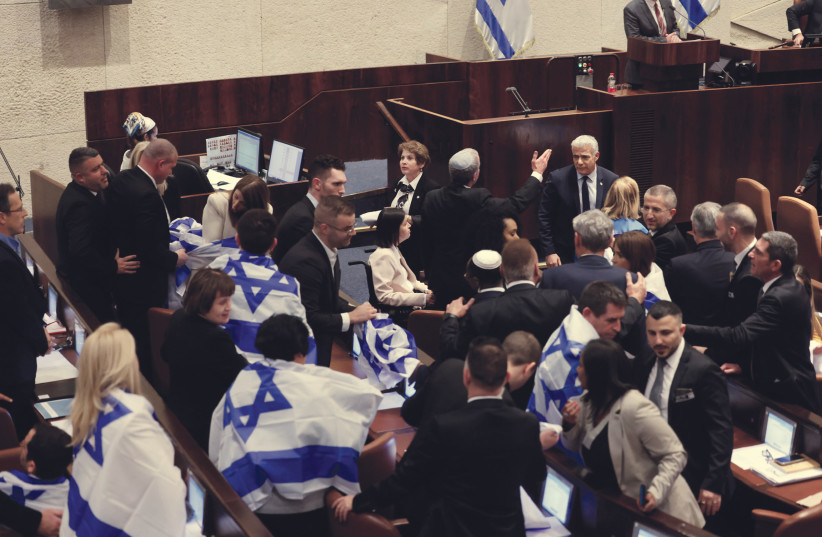During the past two months, there has been a significant political discussion in Israel regarding the current legal reform, which elicited strong opinions both in favor and against it. As part of the protests against the reform, various individuals including elected officials, public figures, academics, and journalists have worked to present the reform as a threat to Israeli democracy, arguing that it could potentially transform the country into an oppressive dictatorship and undermine its liberal values.
Conversely, the Israeli government, which is the initiator of the reform, has remained indifferent and inactive in its efforts to clarify the reform’s purpose. It has not made any concerted efforts to counter the negative media coverage or engage with the international community. As a result, opponents of the reform have been the primary sources of information for the international media, and their arguments often lack a deep understanding of the reform’s nature and potential impact.
Consequently, Israel is being depicted in the global arena as a nation whose democratic principles are under threat. Simultaneously, the opposition and critics of the reform have successfully garnered support from numerous Jewish organizations in the United States, Canada, Australia, and Europe to bolster their campaign.
However, in their opposition to the legal reform, various groups including the opposition, social activists, academics, and media outlets have inadvertently or knowingly contributed to the boycott campaign against the State of Israel. Among progressive circles in the United States and other Western nations, Israel is already perceived as an oppressive and occupying force that disregards human rights.
The actions of the opponents of the reform on the international stage only exacerbate the anti-Israel sentiment and provide more grounds for the global boycott movement to continue their fight, particularly as even within Israel, some criticize the country for not being democratic or liberal enough.

Despite the clear and present danger, the Israeli government has failed to remain vigilant. While the prime minister has granted occasional interviews to American media outlets, he has avoided delving into the specifics of the issue due to the conflict of interest declared by the attorney-general that prevents him from addressing the subject.
Even if Netanyahu were to speak candidly about the reform, it is doubtful that he alone could effectively counter the well-organized and strategic campaign by opponents of the reform, who have already gained significant traction in shaping international perceptions.
The recent establishment of the Public Diplomacy Ministry (Hasbara Ministry) has been hastily and half-heartedly executed, lacking the necessary resources, power, budgets, or personnel to make a meaningful impact. In essence, it is a non-existent office without any practical capabilities.
However, The Public Diplomacy Directorate in the Prime Minister’s Office can serve as a valuable tool for the government to communicate, engage diplomatically, and navigate political challenges. Despite the potential issue of government officials interfering in legal reform, it remains crucial to demonstrate to the world that debates in Israel are conducted transparently and openly, highlighting the vibrant and democratic nature of the State of Israel. Therefore, it is essential to provide accurate and detailed information about the legal reform and to explain the reasoning behind the government’s decision to implement it.
There is no head of public diplomacy
Regrettably, as of today, Prime Minister Netanyahu has not designated someone to serve as the head of public diplomacy. In his previous governments, Netanyahu often delayed the appointment of this role for various reasons.
Nevertheless, the current circumstances do not allow for such procrastination. Israel’s government requires a head of public diplomacy who can effectively communicate with international media, spearhead a public diplomacy campaign in collaboration with the Foreign Ministry, coordinate all government ministries to present a unified message at the spokesman or spokeswoman and informational level and launch a comprehensive public awareness campaign against harmful rhetoric that portrays the State of Israel negatively and as anti-democratic.
The writer is a researcher and Israeli publicist. He holds a PhD in Political Studies.
